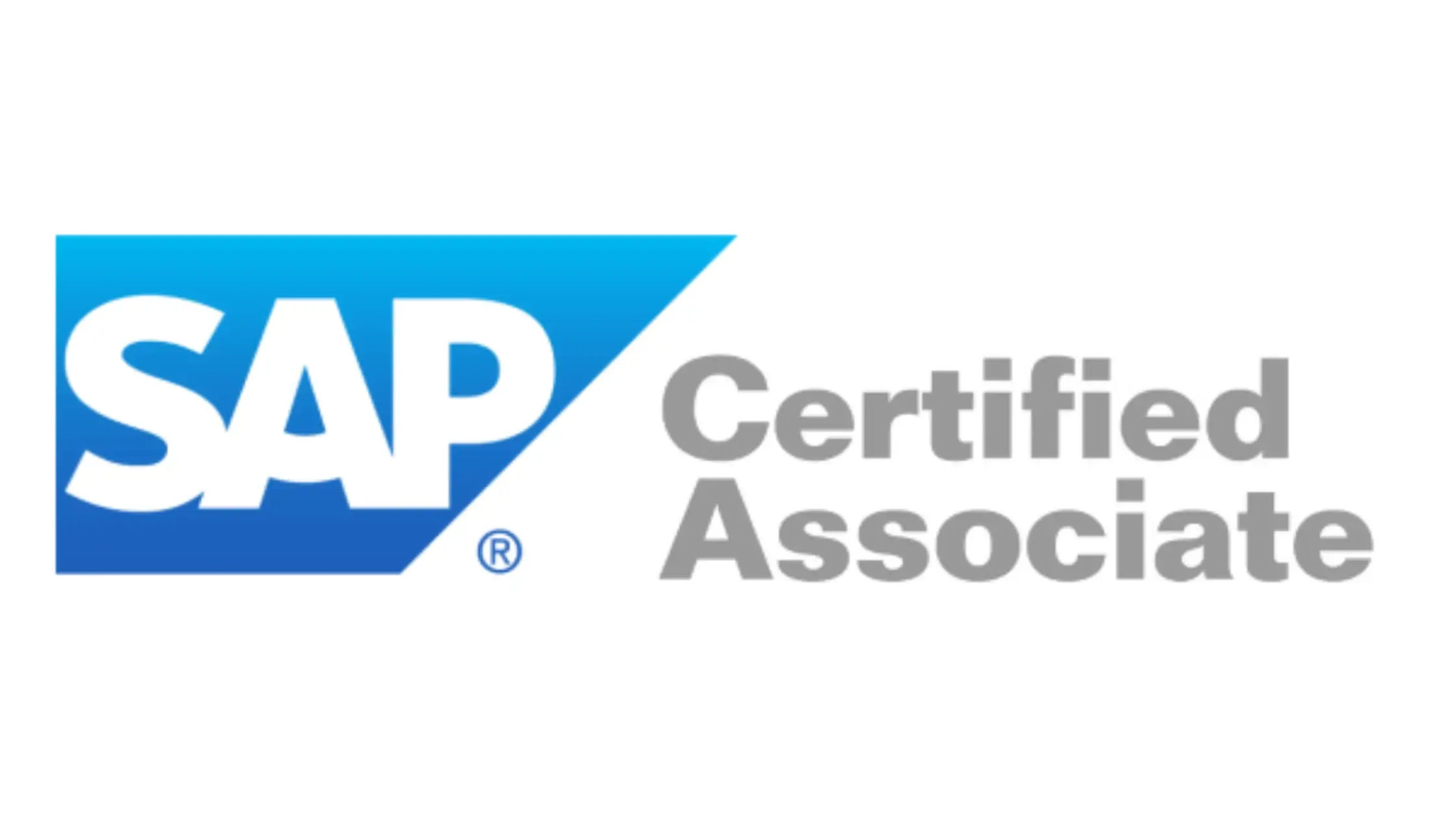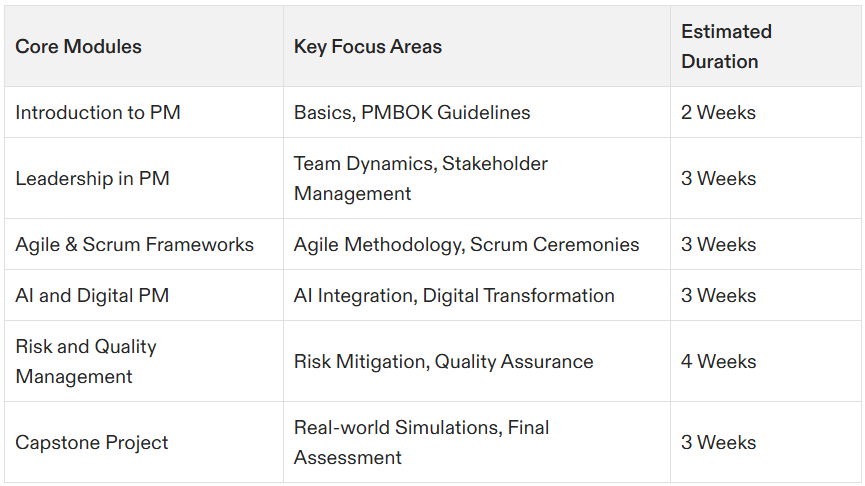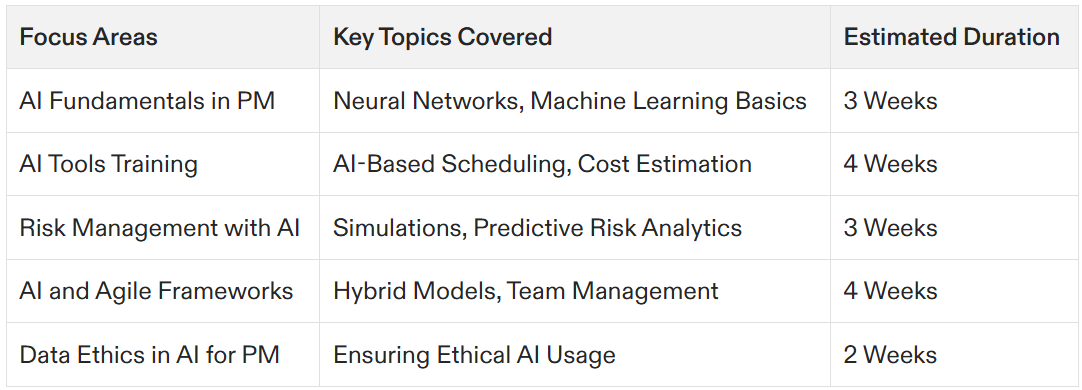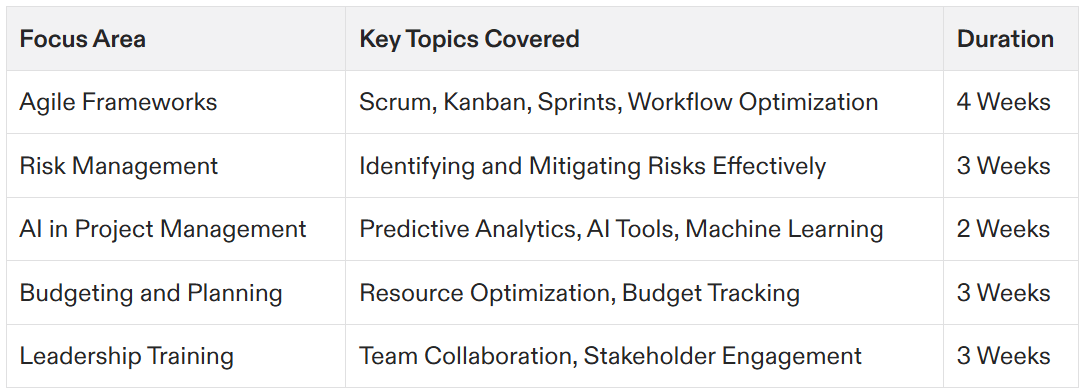Table of Contents
- Introduction: SAP, But Make It Fun!
- Why You Should Pursue an SAP Project Management Certification?
- The Core Features of SAP Project Management Certification
- Who Should Get an SAP Project Management Certification?
- How to Prepare for the SAP Project Management Certification Exam?
- SAP Project Management Certification Levels and Paths
- Common Challenges in SAP Project Management and How Certification Helps Overcome Them
- Career Opportunities After Certification
- 10 Lesser-Known Facts About SAP Project Management
- Final Thoughts
- FAQs
Introduction: SAP, But Make It Fun!
Ever felt like managing an SAP project is like herding cats? Welcome to the world of SAP Project Management! But don’t worry—getting an SAP Project Management Certification can turn you from a confused cat herder into a master strategist. Whether you’re looking to skyrocket your career or just want to finally understand what all those SAP buzzwords mean, this guide is your one-stop shop. Buckle up, because we’re about to deep-dive into everything you need to know to crush your SAP certification goals in 2025!
Why You Should Pursue an SAP Project Management Certification?
In today’s fast-paced digital economy, SAP project management skills are more critical than ever. Organizations worldwide rely on SAP solutions to optimize their operations, but managing these complex implementations requires specialized expertise. Certification ensures you have the knowledge and experience to execute SAP projects effectively.
Beyond technical knowledge, SAP project managers must navigate budgets, timelines, and stakeholder expectations. This certification validates your ability to manage these complexities, giving you a competitive edge in the job market. Employers seek professionals who can drive successful SAP rollouts without costly delays.
Moreover, SAP-certified professionals enjoy increased job security and career growth opportunities. With businesses continually upgrading their systems, demand for skilled project managers remains high. This certification places you at the forefront of enterprise IT leadership.
Finally, certified SAP project managers earn significantly higher salaries than their uncertified peers. It’s not just about the credential; it’s about mastering a discipline that drives tangible business results. Whether you’re an aspiring IT leader or an experienced project manager, this certification opens doors to global opportunities.
1. High Demand for SAP Expertise
SAP is the backbone of countless global enterprises, making certified professionals highly sought after. With companies investing billions in SAP solutions, there’s never been a better time to enter the field.
2. Command a Higher Salary
Certified SAP project managers earn between 20-40% more than their uncertified peers. If you want to level up your paycheck, this certification is a golden ticket.
3. Career Growth Like Never Before
From SAP Implementation Consultant to IT Director, an SAP Project Management Certification can fast-track your career into high-paying leadership roles.
4. Global Recognition
SAP certifications are respected worldwide. Whether you want to work in New York, London, or Dubai, your certification will open doors everywhere.
5. Master Complex Projects with Confidence
SAP projects are notorious for their complexity. With this certification, you’ll be able to navigate integrations, deployments, and system optimizations like a pro.
SAP project managers must stay updated with industry best practices. The SAP Training and Certification Hub offers official courses, resources, and expert guidance to help professionals enhance their skills and stay competitive in the field.
The Core Features of SAP Project Management Certification
The SAP Project Management Certification is designed to bridge the gap between technical expertise and strategic project execution. It provides an in-depth understanding of SAP methodologies and best practices to ensure successful implementations.
One of the key features is the SAP Activate framework, a structured methodology guiding project managers through every phase of an SAP rollout. This framework ensures efficiency, reducing risks and maximizing value for businesses implementing SAP solutions.
Another major advantage is the hands-on training component. The certification program includes practical exercises using SAP Solution Manager and SAP S/4HANA, allowing candidates to gain real-world experience before stepping into project leadership roles.
The curriculum is aligned with globally recognized project management standards, such as PMP and ITIL. This integration ensures that professionals develop a well-rounded understanding of project management beyond SAP-specific methodologies.
Additionally, the certification provides flexible learning options, including self-paced digital courses and instructor-led sessions. This makes it accessible to professionals with varying schedules and commitments, allowing them to upskill without disrupting their careers.
Comprehensive Curriculum
The certification covers everything from SAP Activate methodology to risk management, ensuring you’re well-equipped for real-world challenges.
Hands-On Training
You’ll gain practical experience using tools like SAP Solution Manager and SAP S/4HANA, bridging the gap between theory and application.
Globally Recognized Standards
This certification aligns with PMI’s PMP and ITIL frameworks, making it a robust addition to your credentials.
Flexible Learning Options
With both self-paced and instructor-led courses available, you can choose a learning path that fits your schedule.
Who Should Get an SAP Project Management Certification?
SAP Project Management Certification is ideal for professionals involved in managing SAP implementations, upgrades, or integrations. This certification is particularly beneficial for:
Project Managers: Those overseeing SAP implementations, ensuring projects stay within scope, budget, and timeline.
SAP Consultants: Functional and technical consultants who want to validate their expertise in SAP project management frameworks.
IT Professionals: IT managers and system administrators responsible for enterprise resource planning (ERP) system rollouts.
Business Analysts: Analysts who work closely with SAP implementations and want to bridge the gap between technical teams and business stakeholders.
Enterprise Architects: Those responsible for SAP system design, ensuring smooth execution of complex projects.
With SAP playing a critical role in industries like finance, manufacturing, healthcare, and retail, professionals across various domains can leverage this certification to advance their careers. If you're considering different certification options, explore the Project Management Certification PMI to compare how PMI’s approach aligns with SAP project methodologies.
How to Prepare for the SAP Project Management Certification Exam?
Preparing for the SAP Project Management Certification requires a structured approach and dedicated study time. Start by understanding the certification levels available—Associate and Professional. Choose the level that best matches your experience and career goals.
A solid study plan is essential. Leverage official SAP training materials and supplement your learning with resources like APMIC’s 400+ modules. These materials provide real-world case studies, practice exams, and detailed explanations of SAP methodologies to reinforce your knowledge.
Hands-on practice is equally crucial. Engage with SAP environments, whether through a sandbox system, simulation exercises, or on-the-job experience. Familiarity with SAP tools like Solution Manager and SAP Activate will significantly improve your exam performance.
Mock exams are invaluable for assessing your readiness. Take multiple practice tests to identify weak areas and adjust your study plan accordingly. Exam simulations help you build confidence and refine your time management skills before the actual test.
Finally, consider joining study groups or engaging with the SAP community. Interacting with experienced professionals and certification holders can provide insights, tips, and best practices to enhance your preparation strategy.
Step 1: Choose the Right Certification Level
SAP offers different certification levels, including Associate and Professional. Assess your experience and choose accordingly.
Step 2: Study the SAP Activate Methodology
Understanding the SAP Activate framework—Discover, Prepare, Explore, Realize, Deploy—is critical for passing the exam.
Step 3: Leverage APMIC’s 400+ Learning Modules
Platforms like APMIC offer structured resources to help you ace the exam.
Step 4: Take Mock Exams
Simulated exams will help you identify weak spots and boost your confidence before the big day.
SAP Project Management Certification Levels and Paths
SAP offers multiple certification levels, catering to different levels of expertise:
SAP Certified Associate – SAP Activate Project Manager
Best for professionals who are new to SAP project management.
Covers project methodologies, SAP Activate framework, and agile project execution.
SAP Certified Professional – SAP Project Manager
Ideal for experienced SAP professionals managing large-scale implementations.
Focuses on advanced project planning, risk management, and SAP best practices.
Specialized SAP Certifications
These include industry-specific project management certifications such as SAP S/4HANA implementation management.
Tailored for consultants or project managers in specialized SAP environments.
Choosing the right certification can be overwhelming, so check out Which Project Management Certification is Best for a detailed comparison of top credentials in 2025.
Common Challenges in SAP Project Management and How Certification Helps Overcome Them
Implementing SAP systems comes with unique challenges, including:
Scope Creep: SAP implementations often expand beyond the initial scope, leading to delays and budget overruns. The certification equips project managers with scope control techniques.
Stakeholder Management: Aligning different business units and teams can be complex. Certified professionals learn best practices in communication and stakeholder engagement.
System Integration Issues: Ensuring seamless integration between SAP and existing systems is critical. SAP certification provides expertise in integration testing and system landscape planning.
Change Management: Employees may resist adopting new SAP processes. Certification includes change management strategies to facilitate smooth transitions.
With an SAP Project Management Certification, professionals gain structured methodologies to address these challenges effectively.
Career Opportunities After Certification
SAP Implementation Consultant – Lead ERP rollouts for global enterprises.
SAP Project Manager – Oversee end-to-end SAP deployments.
Enterprise Architect – Design future-proof SAP solutions.
IT Director – Drive SAP transformation strategies at an executive level.
For those in the IT sector, earning an SAP Project Management Certification can be a game-changer, and the Best IT Project Management Certification guide provides insights into certifications that can accelerate your career growth.
10 Lesser-Known Facts About SAP Project Management
SAP Activate methodology evolved from earlier frameworks like ASAP and SAP Solution Manager.
Over 77% of global transactions touch an SAP system.
The SAP Project Management Certification is recognized in over 130 countries. SAP Certification Recognition
SAP-certified project managers report a 30% faster job placement rate.
SAP certifications contribute to higher salary growth, with an average increase of $15,000 annually.
SAP Solution Manager is a key tool covered in the certification, yet many IT professionals are unaware of its full capabilities. SAP Solution Manager
The certification exam includes real-world case studies for practical assessment.
SAP provides a Learning Hub with resources and live sessions for exam preparation. SAP Learning Hub
Many Fortune 500 companies require SAP certification for their IT project managers. Fortune 500 SAP
SAP has over 425,000 customers worldwide, ensuring a vast job market for certified professionals. SAP Customers
Final Thoughts
If you’re serious about advancing your career, obtaining an SAP Project Management Certification is a game-changer. Not only does it validate your expertise, but it also sets you apart in an increasingly competitive job market. With APMIC, you get access to the best project management certifications, ensuring you’re fully prepared to ace the exam and take your career to new heights. So why wait? Start your journey today!
FAQs
What is the validity of SAP Project Management Certification?
Most SAP certifications don’t expire, but some require periodic updates as SAP releases new versions.
Is SAP Project Management Certification difficult?
It’s challenging but manageable with the right study plan, hands-on experience, and practice exams.
Can I take the SAP certification exam online?
Yes, SAP now offers online proctored exams for convenience.
How much does SAP Project Management Certification cost?
Costs vary but generally range from $500 to $1,500, depending on the certification level and training provider.
Is work experience required for SAP certification?
While not mandatory for Associate level, Professional level certifications typically require prior SAP project experience.
How long does it take to get SAP certified?
Most candidates complete the certification in 3-6 months, depending on their study pace.
Do SAP certifications guarantee a job?
While no certification guarantees a job, it significantly improves your chances of landing high-paying SAP roles.
What industries hire SAP-certified professionals?
Industries like finance, healthcare, manufacturing, and retail actively seek SAP-certified experts.










